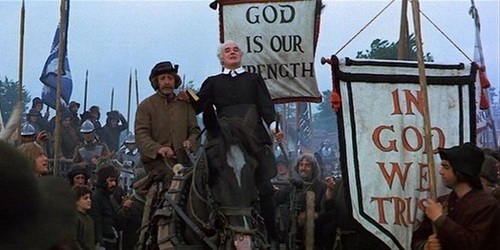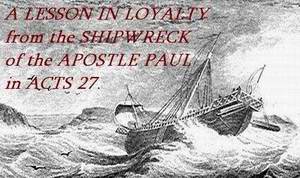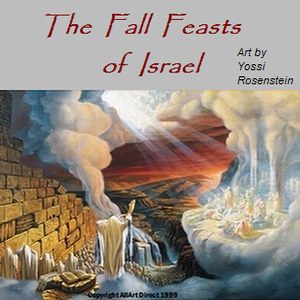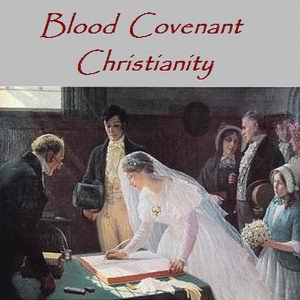THE PURITAN RELIGION
IN THE ENGLISH CIVIL WAR.
 The Puritan Army goes to war against the king
singing hymns. This was the "warrior praise" of that time.
Note the the Puritan preacher with Bible in hand leading in a hymn
and the banner 'In God We Trust'.
The Puritan Army goes to war against the king
singing hymns. This was the "warrior praise" of that time.
Note the the Puritan preacher with Bible in hand leading in a hymn
and the banner 'In God We Trust'.
By Gavin Finley - endtimepilgrim.org |
|
The player below contains a short 2 minute video for broadband users.
|

PURITAN RELIGIOUS ZEAL CANNOT BE CONTAINED BY THE RULING POWERS.
THE ENGLISH MONARCHY AND THE ROMISH STATE CHURCH OF THE TIME IS
BOUND UP IN TRADITIONALISM. AFTER KING CHARLES DISSOLVES ENGLISH
PARLIAMENT FOR THE SECOND TIME THE PURITANS HAVE HAD ENOUGH.
THEY TAKE TO THE BATTLEFIELD AGAINST THE HIM.
The Puritans rising up in the 1600's were a grieved and dissatisfied company. For too long their hopes and aspirations had been denied. Their dreams for an English government and a Church of England upholding a more enlightened Biblical Christianity were still unfulfilled.
The Church of England was the state church at that time. It had the monopoly. Religious meetings, particularly evangelical gatherings, were not permitted by the Church of England. These unsanctioned Christian gatherings were illegal, (just as they are in China today). There was no real freedom of religion anywhere in Christendom at that time. There was the government's church. Then there were other Christians meeting secretly and illegally. To the Puritans this was an intolerable state of affairs. The very powers of England, both their church and their king, were against them. But this was not the worst of it. These rulers were standing in the way of God Himself!
The Puritans found this state of affairs quite intolerable. To them it was a serious and grievous matter. The king had not closed the door on just a parliament. He had closed the doors on God Almighty Himself! Their Biblical Christianity, new and wonderful, had been stymied and this by a king and a Church leadership who should know better.
As Puritans they were not inclined to go off and live a secret life as "non-conformists" or as despised "separatists". No, not at all. They were Englishmen! Everything they did was going to be above board and on the record. As they saw it, the way ahead was clear. God was leading them forward. If the king, his aristocracy, and his hired churchmen were not going to lead England on into the glorious future they saw laid out for them then God help them, they themselves would do it! They were on the move. A fiery zeal had been ignited and was now burning within them. They would go to war if necessary, for God and country! And God help any man or devil who stood in their way!
The Puritans rising up in the 1600's meant business. They were the main story in the England of the 1600's. There were economic issues here as well to be sure. But these have been overstated by our left-wing professors of history. Yes there was economic disparity between the rich and the poor. But economic inequality is not the main engine of history as we have been told. The main engine of history is the agenda of God Almighty. He is the sovereign One. And He Himself will bring His-Story forward full circle and center stage to bring the history of this present evil age to its grand conclusion. All the reactionary gyrations of men who conspire and stand in His way will eventually be swept aside. King David wrote a song about this 3,000 years ago. It is there in Psalm 2.
Class struggles and economic issues are there of course. But these are secondary to the main spiritual currents of holy history. Yes there were "levelers" in Cromwell's Puritan Army. These Utopians wanted to see the class strata leveled out to one class. They ran a spectrum from the polite style of socialists, (like we see occupying the left wing of our present day western democracies), to the murderous "Cambodian" or "Mao" style communist radicals we saw in the 20th century. The latter we would call communists today. They believed that Utopia would come if they hacked out the middle and upper classes to leave a single peasant class society. There were even anarchists and bombers in Cromwell's Army of Parliament. But the Puritan presence and the able leadership of Oliver Cromwell kept these godless fringe elements in check.
The Puritans were a religious movement but possessing a terrible zeal. Unlike the Pilgrims these were Christian fundamentalists who would, if necessary, not hesitate to pick up the sword. During the 1640's they raised an army of 50,000 men. They were a force to be reckoned with, as King Charles discovered. When he attempted to raise an army from abroad the Puritans charged him with hight treason against the people of England. Later he was sent to the "bloody tower" of London and then on to face the axeman.
The Puritans were totally and absolutely committed to establishing a Christian nation in England. They wanted a representative government in Parliament elected by and subject to the people. If the king went along with them together they would create a wonderful Christian nation which all the world would look up to.
Alas, this wasn't to be. King Charles believed in the divine right of kings. Sharing power with "cobblers and basket weavers" was, to him at least, quite unthinkable. And so the irrepressible and fiery force of Puritanism met the immovable object of English royalty. The resulting clash was inevitable. History would record it as the English Civil War.
The Puritans were not the only ones who were on the move during this time. The evangelical zeal among the Pilgrim separatists in England was also very strong. Both branches of the Christian fundamentalist family, the Puritans and the Pilgrims, were a people whose faith had been kindled by the ready availability of the English Bible. Now their faith was on fire. Their fiery zeal had to be expressed in some way, either religious or political. England in the 1600's got both!
The Pilgrim separatists were not as politically motivated. But they were a group of Reformers very busy with the spiritual reformation that they believed was Job #1, namely, the sharing of the Gospel. The printing of Gospel tracts and the evangelical witness on a personal level was a very influential phenomenon. This was a Christianity practiced out in the homes, the fields, and the marketplaces and not just at Sunday mass in the cathedral. This was a highly significant shift. The spiritual climate was changing. And the lights were being lit all across England and Europe.
The Pilgrims were active at this time as well as the Puritans. Many had their eyes on America and in their homes they discussed their prospects for migration to the New World. After the English Civil War the Non-Conformist John Bunyan went out preaching openly in the streets. He preached the Gospel without proper ordination and without authority from the Church of England. This was something that was highly improper. It just wasn't done. But John Bunyan with the fire of the Gospel in his heart did it anyway. He paid the price for this of course. For many years he was imprisoned at Bedford Gaol. During his imprisonments John Bunyan wrote that classic piece of literature, 'Pilgrim's Progress'.
In the 1600ís Non-Conformist churches, such as those of the Congregational, Baptist, and Brethren Church traditions, were changing the spiritual milieu of England. The Bibles were being read and the seeds of the Great Awakening were planted at this time. The following century would see the preaching of John Wesley and others and a series of revivals throughout England and America. It is this personal Christianity and the personal responsibility and integrity that comes along with it that has been the number one blessing God has given to the English speaking people.
Pray God that they come to remember this in the times to come.
Here is the NEXT ARTICLE.
|
|

|

|
|

|

|

|
